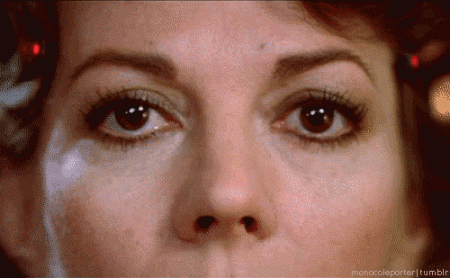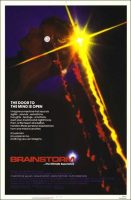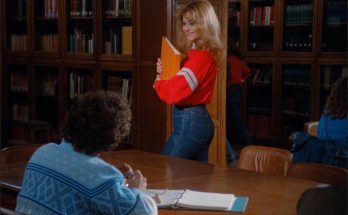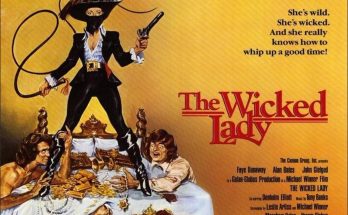Taglines: The door to the mind is open!
Brainstorm movie storyline. Brilliant researchers Lillian Reynolds and Michael Brace have developed a system of recording and playing back actual experiences of people. Once the capability of tapping into “higher brain functions” is added in, and you can literally jump into someone else’s head and play back recordings of what he or she was thinking, feeling, seeing, etc., at the time of the recording, the applications for the project quickly spiral out of control.
While Michael Brace uses the system to become close again to Karen Brace, his estranged wife who also works on the project, others start abusing it for intense sexual experiences and other logical but morally questionable purposes. The government tries to kick Michael and Lillian off the project once the vast military potential of the technology is discovered. It soon becomes obvious that the government is interested in more than just missile guidance systems. The lab starts producing mind torture recordings and other psychosis inducing material.
Brainstorm is an American 1983 science fiction film directed by Douglas Trumbull and starring Christopher Walken, Natalie Wood, Louise Fletcher and Cliff Robertson. It was Wood’s final film appearance, as she died during production. It was also the second and final major motion picture to be directed by Trumbull.
The film follows a research team’s efforts to perfect a system that directly records the sensory and emotional feelings of a subject, and the efforts by the company’s management to exploit the device for military ends.
About the Story
A team of scientists invent a brain/computer interface that allows sensations to be recorded from a person’s brain and converted to tape so that others may experience them. The team includes estranged husband and wife Michael and Karen Brace, as well as Michael’s colleague Lillian Reynolds. At CEO Alex Terson’s instruction, the team demonstrates the device to investors in order to gain financing.
Karen dons the recorder while working with Michael and Lillian. When Michael plays the tape back, the group realizes that emotional experiences are also recorded. Michael tapes his memories of times with Karen, which he shares with her, and it leads to their reconciliation.
One team member, Gordy Forbes, has sexual intercourse while wearing the recorder, and he shares the tape with colleagues, including Hal Abramson. Hal splices one section of the tape into a continuous orgasm, which results in sensory overload, leading to his forced retirement. Tensions increase as the possibilities for abuse become clear.
Lillian is pressured by backers to admit in the team a former colleague, Landon Marks, whom she sees as part of the military-industrial complex. She disagrees with their plan to have the invention developed for military use. Already suffering from heart problems and a constant cigarette smoker, Lillian suffers a heart attack while working alone. Realizing that she is about to die, Lillian records her experience.
Following her funeral, Michael decides to experience Lillian’s recording, but he nearly dies when the playback causes his body to simulate the sensations and effects of a heart attack. Michael modifies his console to filter the physical output, and he replays the tape. Viewing Lillian’s death experience, he sees “memory bubbles” — moments from Lillian’s life. Michael experiences Lillian’s memories of a humorous exchange with Michael as he plays with an industrial robot, a surprise birthday party, and being devastated when Alex tells her that an earlier project has been cancelled.
Brainstorm (1983)
Directed by: Douglas Trumbull
Starring: Christopher Walken, Natalie Wood, Louise Fletcher, Cliff Robertson, Jordan Christopher, Alan Fudge, Darrell Larson
Screenplay by: Robert Stitzel
Production Design by: John Vallone
Cinematography by: Richard Yuricich
Film Editing by: Freeman A. Davies, Edward Warschilka
Costume Design by: Donfeld
Set Decoration by: Linda DeScenna, Tom Pedigo
Art Direction by: David L. Snyder
Music by: James Horner
Distributed by: Metro Goldwyn Mayer, United Artists
Release Date: September 30, 1983
Visits: 164





